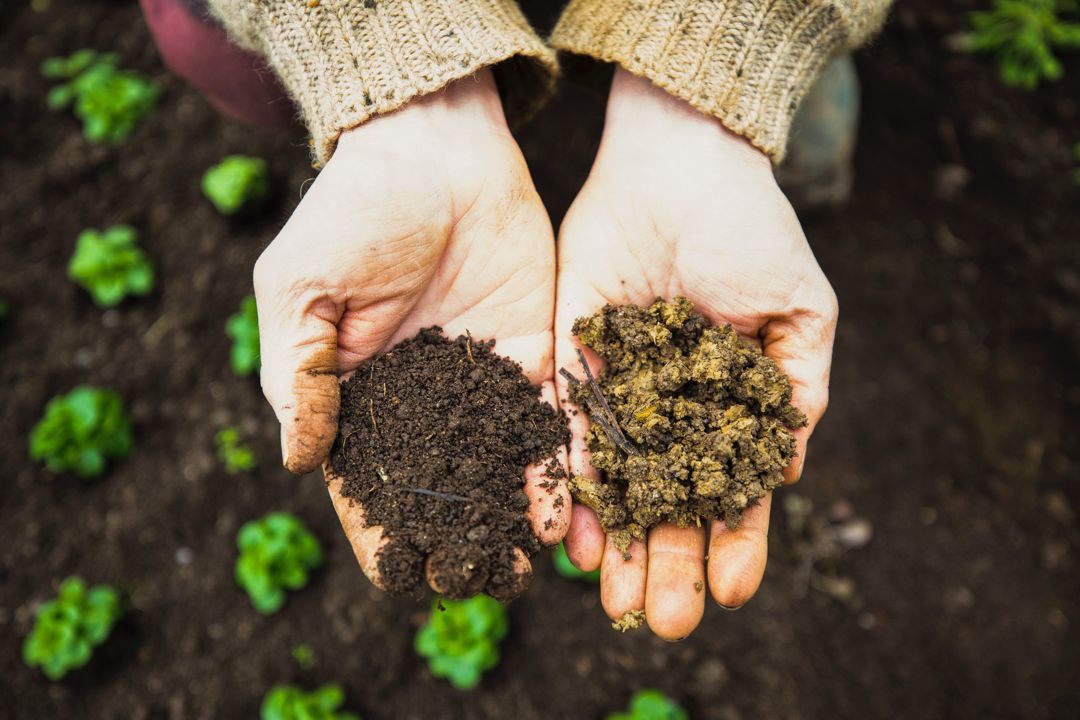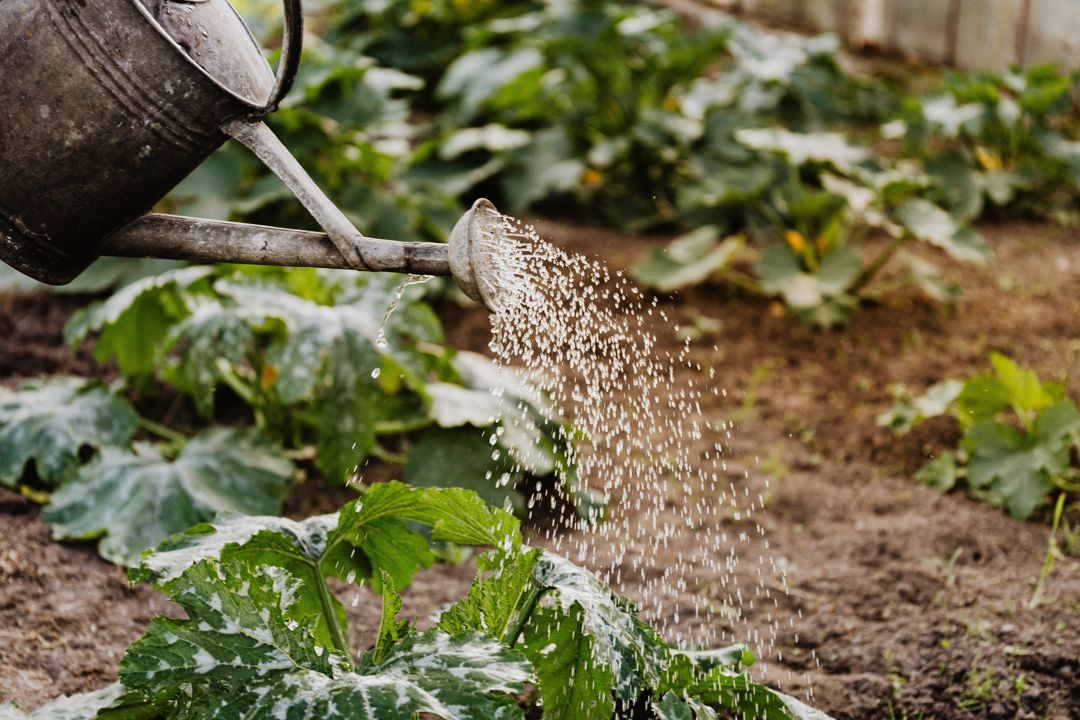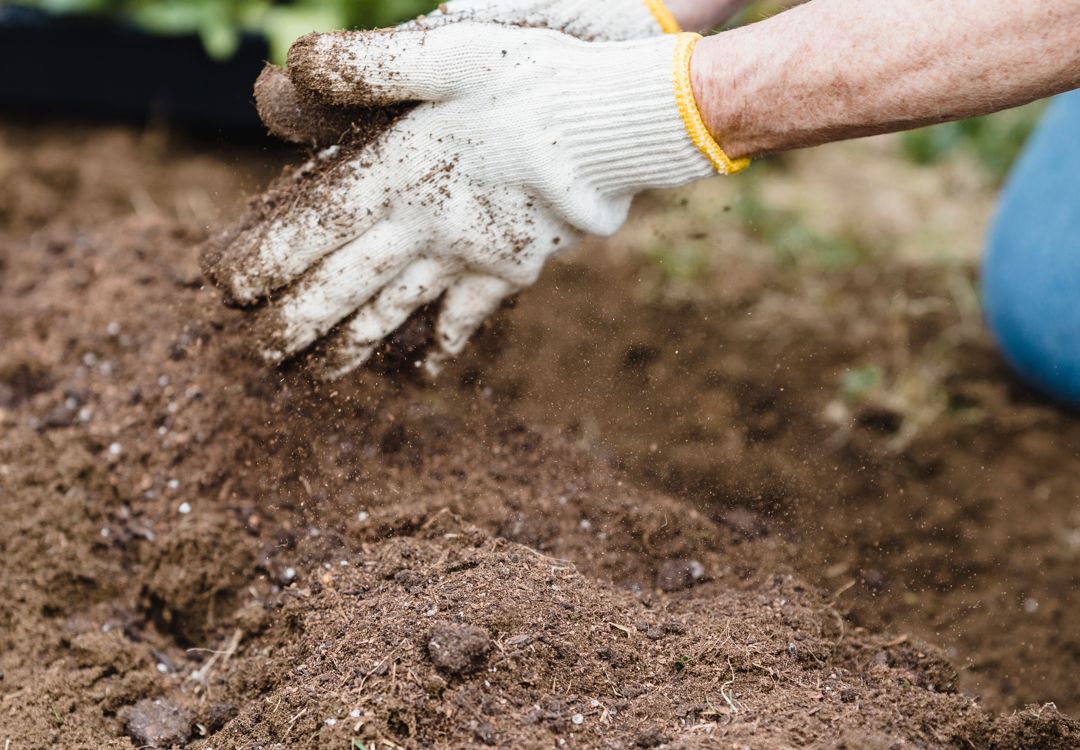As plants grow, they use nutrients from the soil which can eventually become depleted if they are not replenished. Since we usually harvest our veggie garden produce rather than letting the plants decompose back into the soil, soil nutrients can dwindle over time. Fertilizer adds soil nutrients that are lacking so that new plants can grow. You might only think of fertilizer as the little granules that come in bags from the garden center, but there are many different options to add nutrients to your soil!
Organic versus Synthetic Fertilizer
Garden fertilizer can be categorized as either organic fertilizer or synthetic fertilizer (commonly called ‘chemical’ fertilizer) . Organic fertilizer is fertilizer with naturally-derived ingredients that contain the nutrients that plants need in their natural state. Synthetic fertilizers are manufactured, readily available forms of plant nutrients.
Organic fertilizer is more than just one product you can buy - there are many organic sources of nutrients for plants. Some examples of organic fertilizers are:
- Bone meal and blood meal: both are animal byproducts, however blood meal mainly provides nitrogen while bone meal mainly provides phosphorus and calcium.
- Manure: there are many types of manures that make good compost including poultry, cow, sheep, and horse manure, to name a few. If you are not buying a bagged product from the garden center, make sure the manure is completely rotted down before using and is free of herbicides or pesticides.
- Alfalfa: alfalfa meal or pellets is a great source of nitrogen for the garden that can be found at garden centers and animal feed stores. Be sure the product you buy only contains alfalfa hay as an ingredient.
- Fish emulsion: fish emulsion is a relatively fast-acting liquid organic fertilizer concentrate made from fish byproducts. Brace yourself before using fish emulsion…it does have a fishy smell!
- Compost: Compost is mostly used to add organic matter to the soil, but it does contain nutrients that plants need. Compost doesn’t typically have high concentrations of nutrients, so you may still need to supplement with another fertilizer.

Because organic fertilizers have nutrients in their natural state, they need to be broken down by soil microbes before they are available for plants to use. This process can take some time compared to a synthetic fertilizer.
Synthetic fertilizers are not necessarily ‘bad’. They provide readily available forms of the key nutrients that plants need to grow. It can be easy to over-apply synthetic fertilizers though, which can harm your soil and your plants as well as contribute to environmental damage. There are ‘slow-release’ fertilizers that release nutrients over time that can help avoid this. Be sure to only use synthetic fertilizers that are labeled for use in vegetable gardens.
Regardless of whether you use organic fertilizer or synthetic, it’s a good idea to do a soil test to confirm which nutrients your soil is lacking, since both over-applying and under-applying fertilizer can cause problems. If you can’t do a soil test, stick to a mild, balanced organic fertilizer and apply it at no more than the recommended rate.
Granular versus Water-Soluble Fertilizer
There are two main fertilizer formats for use in the veggie garden: granular fertilizer and water-soluble fertilizer.
Granular fertilizers are dry, small granules (sometimes powder-like). They can be worked into the top several inches of soil or mixed with soil in the planting hole when planting. They can also be applied mid-season by ‘side dressing’ - applying on the soil surface alongside growing plants.
Water-soluble fertilizer is dissolved into water and applied with a watering can or using a hose attachment. Water-soluble fertilizer is a more direct method of delivering nutrients that can start to work faster than granular fertilizers. Using a water-soluble fertilizer can work to give your plants a quick boost when they are in need.

So, Which Fertilizer is Best?
There isn’t one ‘best’ type of fertilizer for the veggie garden! The type of fertilizer you use depends on many factors: which fertilizers are readily available, your budget, which nutrients are lacking in your soil, the types of plants you are growing, and whether you are fertilizing proactively or treating plants that are already suffering from a lack of nutrients.
This means you don’t need to buy the most expensive products at the garden center to get great results. There are many garden fertilizer options that will give your plants all the nutrients they need to flourish!
